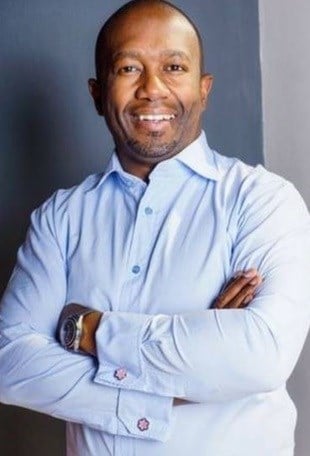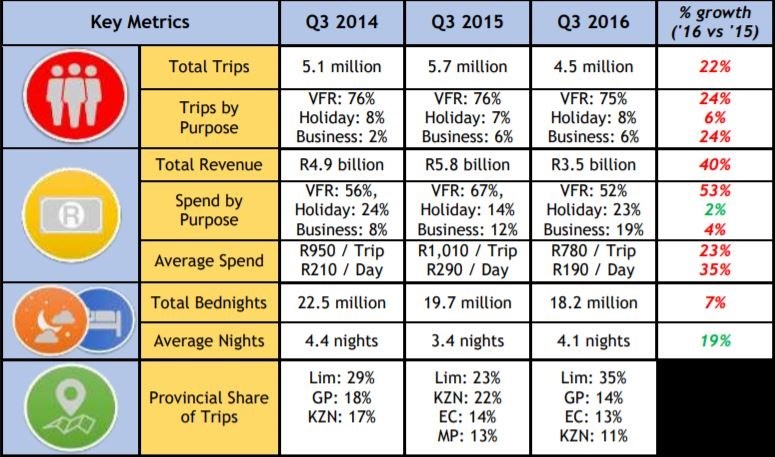
Related
Top stories






More news


Marketing & Media
Ads are coming to AI. Does that really have to be such a bad thing?













The tourism sector is of importance to the world. It boosts economies and creates jobs, with one in eleven jobs around the world driven by it. Destinations and the businesses that operate within them are looking at ways in which they can bolster their strategies to increase sales and reach.
According to Ntshona, South Africa has never had to rely on anything except its resources.

“Africa has been about mining. Africa has been about oil. Africa has been about mineral resources. All around the world markets have tanked, commodity prices are down and the cost of getting things off the ground are getting more expensive. Whilst everyone wants to get their product overseas, tourism is actually bringing people to the market for a much-needed API,” says Ntshona.
What has become harrowing, however, especially in the South African climate is the way in which we have overlooked what we can do as a country, amidst economic woes. Tourism has been identified as the sector to take South Africa out of its current economic status.
“At the moment, South Africa finds itself in a similar space as Angola, Nigeria, and East Africa. South Africa has begun weening itself off resources and has begun recalibrating its GDP contribution. More importantly to note is that more than 1.2 billion people are moving around the world.
The entire continent, for a billion people itself, has less than 5% of the global market share. That in itself either scares you or excites you. Scares you in terms of 'wow, are we that bad', but excites you in terms of opportunity,” continues Ntshona.
Africa is still a continent that needs to be discovered and that is the exciting part Ntshona noted, adding that we have to fight as a block in southern Africa in terms of activities against international markets.
“South Africa finds itself in a technical recession, which is basically two-quarters of negative growth, with high unemployment, especially among the youth and a junk status environment. What does it really mean? It basically means that the cost of capital is high.
It’s important to know that we have one of the world’s highest Gini coefficient. We have to understand that the world at the moment grapples with inclusive growth. Inclusive growth means including minorities into the economy. South Africa is the other way around. It tries to include the majority into the economy and once you start to understand how the environment operates, you’ll make different decisions about the future and what some of the challenges are,” says Ntshona.
“Stop admiring the problem, let’s deal with it.”
South Africa is looking for distributed growth according to Ntshona. At the moment, tourism contributes to 3% of South Africa’s GDP, with a directive spend of 9%. “The more people to sell to, the more people are employed, the more they are economically active, the more we can get the sector to go up on that side,” continues Ntshona.
Ntshona highlighted that in 2015/2016, an Ebola outbreak occurred in West Africa, which resulted in the world deciding that the entire continent had Ebola and that it has become a sentiment that gets created when we try to win other destinations, even though London is closer to West Africa. Ntshona also highlights that South Africans have gotten accustomed to using the narrative that things don’t work, that the government is useless and went on to say that we should stop admiring the problem and rather deal with it.
“We're sluggish on domestic tourism. If you look at most economies around the world that have a very strong tourism space, they’re built on a very strong domestic sector overplayed by an international one. Then again, in South Africa, we have a weaker domestic side and a stronger international space.

Thirty years ago, people in South Africa needed visas to move from one space to the other – it was something that became ingrained, which became a confidence issue. South Africans need to explore their own country. The Ebola outbreak resulted in cancellations and no one could pick up the domestic space or plug those gaps when the sway of the world started to change around us,” says Ntshona. With reference to the recent fires which took place in Knysna, Ntshona said that cancellations came through at a significant rate and that there wasn’t really a domestic sector to plug those gaps.
South Africa needs to deliberately choose where it sees opportunity and doing research to determine and consider visa regulations, airline connectivity, GDP of economies, as well as the ability to travel. South Africa ended up with 44 markets to focus on according to Ntshona, with big international markets like Europe, the United States, South East Asia, India and China making investments.
“In five years, we’re hoping that five million more tourists will be making their way to South Africa, that’s four million internationals and one million domestic tourists. We want to get people involved and find solutions, it’s important to look at both supply and demand,” says Ntshona.
Ntshona notes that it is the responsibility of each province to be attentive to the needs and wants of tourists and how they can capacitate them, especially when looking at large events taking place in South Africa, like the World AIDS Conference for example, which saw over 20,000 people flock to Durban – transportation, accommodation and food all need to be taken into consideration.
Ntshona continued to say that seasonality is important and that it is important to spread people to other locations, that we should start looking at balancing portfolios in terms of the market.
Ntshona advises that South Africa should not be advertised as a cheap destination, but as a destination that offers a unique experience, a destination that offers value for money.
South Africa is home to a diverse cultural heritage that includes art, music food and everything African. Ntshona says that South Africa leads in the three B’s - beach, berg and bush - but that is not all it has to offer, there is more to do. It is these sort of offerings which we should look at and look to grow. Why paint ourselves into a corner with these three offerings, when there are 20 more available asks Ntshona.
Ntshona continued to say that private and public collaboration is a must and that it becomes important to focus and see what we can do and how we can help to boost our cultural spaces and offerings.